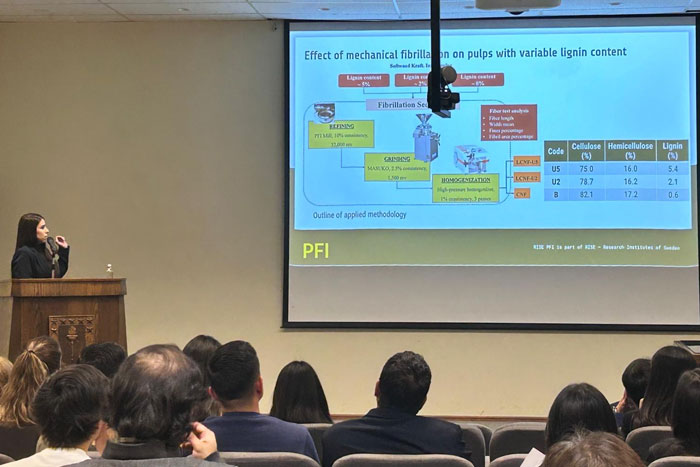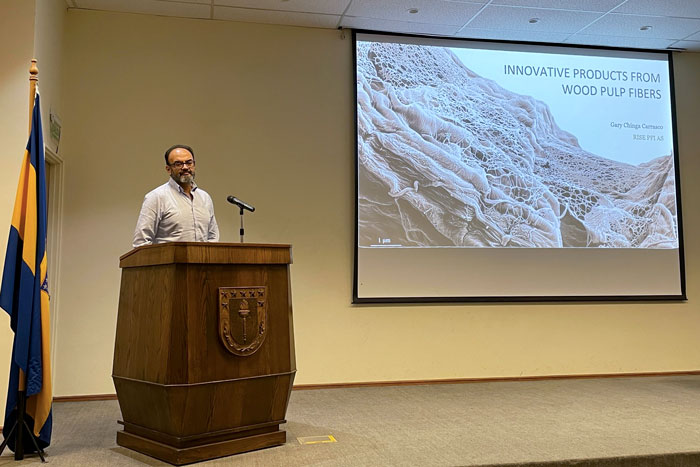At RISE PFI, our team is advancing sustainable materials by replacing traditional plastics with thermomechanical pulp (TMP) fiber-based biocomposites that offer enhanced strength, durability, and sustainability. Recent work by RISE PFI research scientists Nanci Ehman, Sandra Rodriguez Fabia, and Gary Chinga Carrasco explores innovative methods to improve the compatibility of cellulose fibers with polyolefins like LDPE and HDPE, using alkaline acetylation. This research was recently presented by Nanci Ehman at the 13th Iberoamerican Congress of Pulp and Paper Research (CIADICYP) in Concepción, Chile, as part of the WoBiCo project.
This acetylation process strengthens the bonds between cellulose and plastic matrices, leading to significant improvements in mechanical properties and reduced water absorption in biocomposites. Our study demonstrates that TMP-based materials, combined with chemical modifications, can significantly boost biocomposite performance and bring us closer to a sustainable future.
In addition, wood fibers can serve as a core component in thermoformed products, such as food packaging products, produced through technologies like wet-moulding and dry-forming. This topic was highlighted in a keynote delivered by Gary Chinga Carrasco, “Innovative Products from Wood Pulp Fibres,” also presented at CIADICYP, as part of the REDYSIGN project.


